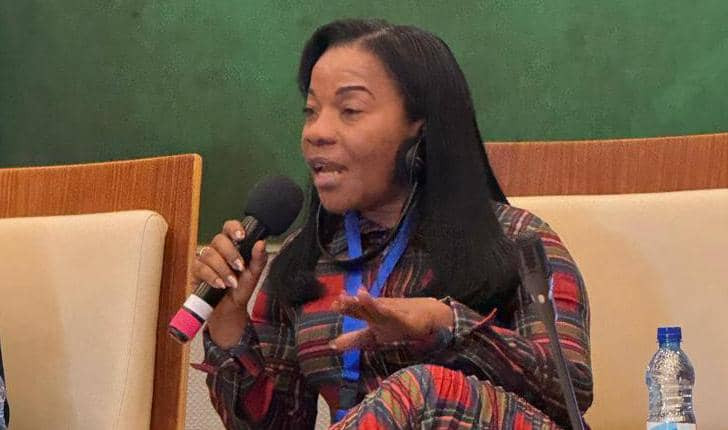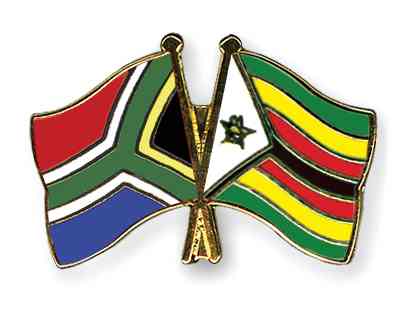
Equatorial Guinea Treasury and State Heritage minister Milagrosa Obono Angüe has challenged African countries to come up with a basket of currency to boost intercontinental trade among member states.
She was speaking at the Panel on Free Movement in Africa during the African Union Heads of State and Government, representing the Bureau of the Assembly of the African Union (AU) and Chairpersons of the Eight Regional Economic Communities (RECs) and Regional Mechanisms (RMs), 7th Mid-Year Coordinating Meeting convened at the Sipopo Conference Centre in Malabo, Equatorial Guinea last week.
Zimbabwean President Emmerson Mnangagwa attended the meeting as the chairman of the Southern African Development Community (Sadc).
Angüe said the African Continental Free Trade Area (AfCFTA) has faced a number of challenges including reducing states’ reserves in various expenses.
“I believe that it is in this sense that Africa, the African continent, must think of creating perhaps a basket of African currency to allow this exchange between different merchants and businessmen in Africa,” she said.
Angüe said the free movement of people, goods, services, and capital in Africa is not about a distant dream, but rather an imperative necessity and ongoing project that will define the future of our continent.
“The African Unio Agenda 2063 ‘The Africa We Want’, provides us with a clear roadmap, and the African Continental Free Trade Area (AfCFTA) is the engine propelling toward that destination. But for this engine to operate at full capacity, we must ensure that fundamental components are solid and well-assembled,” she said.
Angüe also called for a strong and unified political commitment.
- Zim needs committed leaders to escape political, economic quicksands
- Byo author eyes SA award
- MIHR petitions govt on Lubimbi relocations
- US$200K armed robber in court
Keep Reading
“This means that we, the member states, must accelerate the ratification and implementation of key legal instruments, such as the Protocol on the Free Movement of Persons. It is unacceptable that, to this day, slow ratification hinders the potential of an entire continent.
“We must work to harmonize our national policies on trade, investment, and immigration with continental frameworks, eliminating non-tariff barriers and simplifying customs procedures. A unique African passport and a more open visa policy are no just symbols--they are practical tools for integration,” she said.
Angüe also applauded the African Heads of State and Government expressing their political will to continue allowing and guaranteeing the free movement of people, goods and capital.
She said since free movement required pathways to move through, there was a need to strategically invest in cross-border infrastructure including roads, railways, ports, and air corridors that connect African countries efficiently and cost-effectively.
“Just as important as asphalt and concrete is digital infrastructure. Robust and affordable internet connectivity together with interoperable digital payment systems will facilitate e-commerce, the flow of services, and the movement of capital integrating our economies into the digital age,” Angüe said.
“We understand the legitimate concerns about security that opening borders can generate. Therefore, cooperation in security matters is not optional--it is an indispensable condition. We must strengthen information and intelligence sharing among our countries and invest in modern technologies for smart secure border management. An open border must not be an unsafe border. On the contrary, coordinated management will enable us to more effectively combat transnational crime terrorism and illicit trade, ensuring that freedom of movement benefits our law-abiding citizens and not those seeking to destabilize us.”
She said while governments create the frameworks, but it was our entrepreneurs, traders, young innovators, and professionals who will breathe life into free movement.
“We must create an enabling environment for the private sector to thrive, facilitating access to financing, protecting investments, and ensuring the validity of contracts across borders. Civil society, for its part, plays a crucial role in raising awareness of the benefits of integration and ensuring that these reach every corner of our societies especially women and youth, who drive small-scale cross-border trade,” she said.
Angüe said free movement of capital would be an illusion if the African countries do not directly address the monetary issue.
“At present, intra-African trade is stifled by the need to resort to foreign currencies such as the dollar or euro for transactions. This creates unnecessary conversion costs, exposes us to exchange rate volatility, and drains our reserves.
“It is imperative to define an efficient trade exchange mechanism. The creation of a basket of African currencies could be a pragmatic intermediate step facilitating trade and laying the groundwork for the ultimate goal of a single African currency.
“However, the most immediate and transformative solution is already underway: the Pan-African Payment and Settlement System (PAPSS). This platform enables African companies to trade with one another using their local currencies, settling transactions instantly and securely.
“Supporting and expanding PAPSS across the continent is an absolute priority. Implementing free movement of capital without a unified clearing system and without resolving the currency issue would be like building a highway without vehicles able to travel on it--it simply will not work.”
The AfCFTA has the potential to lift 30 million people out of extreme poverty and increase the continent's income by $450 billion by 2035, she said adding that this would see an exponential increase in intra-African trade, fostering industrialization, the creation of regional value chains, and the diversification of our economies.
“The free movement of people will facilitate the transfer of knowledge and skills. and the free movement of capital, backed by a solid financial architecture, will attract the investment needed for our major development projects,” Angüe said.
“The task ahead of us is historic. It requires boldness, commitment, and above all, action. Let us set aside doubts and purely national interests to embrace continental vision. Let us build together a barrier-free Africa, a vibrant and prosperous single market where every African citizen has the freedom contributes to and benefit from the wealth of our magnificent continent.”
Angüe applauded the AfreximBank for creating a payment system that allows the different businessmen in Africa to transact in different local currencies.
She said the African continent very advanced in pushing for intercontinental trade although the journey was still long.
“We cannot leave so much work for the generations to come,” she said.
Meanwhile, addressing delegates Angolan President João Manuel Gonçalves Lourenço, who is the current AU chairman, said regional integration in Africa was not merely a political, economic and social ideal.
“It is a strategic necessity for our continent, which is marked by colonial era borders that often overlook the cultural, social, and economic realities of our peoples,” he said.
“As we move forward, we reaffirm our commitment to addressing these challenges through collaborative efforts and strategic initiatives aimed at enhancing integration and fostering prosperity for all African nations.”
AU commission chairperson Mahmoud Ali Youssouf underscored Africa’s critical role on a rapidly changing world.
“Our continent must position itself with strength and determination, primarily through the acceleration of integration, which is facilitated by the AfCFTA, the African single market, and the African single currency.
“We hold 50% of the world's manganese reserves, 80% of platinum, and 47% of cobalt; the transformation of African agricultural products offers opportunities to consolidate the value chain; the direct foreign investments remain essential, having reached US$52.6 billion, while monetary transfers approached $95 billion,” he said.
“Our African Continental Free Trade Area remains the cornerstone of intra-African trade expansion, with expectations of over 50% growth by 2035. We must continue to dismantle both tariff and non-tariff barriers to achieve our ambitions.
“Digital transformation is key to enhancing productivity across critical sectors in our economies. Countries like Rwanda, Kenya, Ghana, and Nigeria are already witnessing the benefits of embracing digital innovation.”
The coordinating meeting also discussed the meeting’s agenda items including a progress review of regional and continental integration, and they considered various reports highlighting advancements made across the strategic pillars of integration: political, economic, infrastructure and human development.







